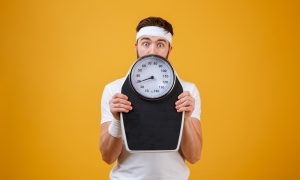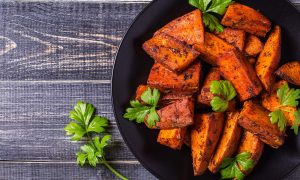4 of the worst weight loss mistakes you will ever make

|
|
Trying to lose weight is a process that virtually all of us will have to go through at some point in our lives. If we’re lucky, we may only need to drop a few pounds that we may have gained during a vacation, or perhaps over the holiday season. If however, we are less fortunate and are like millions of other people in the world, we may need to lose substantially more than just a few pounds, which can become a longwinded and arduous process that can potentially eat away at your life and cause great misery if you’re not careful. When it comes to losing weight, more often than not, the first thing that people who are trying to lose weight will do, is go on a “diet” despite the fact that the term ‘diet’ is incredibly vague and extremely general. To make matters worse, there is so much misinformation floating about out there, regarding weight loss, that in many instances, a lot of people actually end up making matters a whole lot worse, so they end up dealing with issues that go above and beyond losing fat. Here’s a look at 4 of the worst weight loss mistakes you could potentially ever make, and what you should be doing instead.
Going on a ‘fat-free’ diet

Remember, we’re not living in the 80’s anymore, and times have changed, as had scientific research and medical findings. In the past, fat of any kind was demonized and was considered to be the root-cause of every single major problem in the world, including obesity and cardiovascular disease. However, back then, experts were unable to distinguish between the different kinds of fats, so there was no way of knowing that some fats were bad for us, whereas others were incredibly good for us. Polyunsaturated fats and monounsaturated fats are two examples of fats that are extremely beneficial for the human body, meaning that, not only is it okay to have some, but that we actually medically need to have some each day, in order for our bodies to work at their best. If however, you go on a ‘fat-free’ diet, you are depriving your body of healthy fats that boost brain health, strengthen the heart, lower LDL cholesterol, regulate blood pressure, and speed up the metabolism. Yes, healthy fats actually speed up your metabolism, so by consuming these fats, you can actually help your body to burn fat more efficiently.
Not exercising
Okay, not all of us are cut out to exercise five or six times per week in a gym, or out on a running track, or anywhere else for that matter, but that doesn’t mean that we should just not exercise at all. Remember, exercise comes in a variety of different forms, and just because you may hate the thought of working out in a gym, that doesn’t mean that you should resign yourself to the fact that exercise is not for you. You could go walking, you could hike, you could jog, you could cycle, play sports, swim, or even just do some work in the garden. As long as your heart rate is up you will be burning calories and getting fitter in the process. When trying to lose weight, one of the worst mistakes you will ever make is simply not bothering to exercise at all. Exercise will not only speed up your weight loss, it will also help you to tone and build up your muscles, plus it will improve your cardiovascular conditioning in the process. When it comes to weight loss, make sure you are exercising at least three times per week, although how you do so will be entirely up to you.
Skipping meals

Losing weight is a matter of calories in versus calories out, so in order to generate a caloric deficit, it makes sense that you should skip meals, right? WRONG! Skipping meals will obviously deprive your body of calories, but it will also deprive your body of energy, so your metabolism will slow right down, meaning that you simply won’t burn body fat anywhere near as efficiently as you should. Your body will actually hold onto body fat because it will think it is starving, so by skipping meals you will actually make it harder to lose weight. By all means track your calories, and try to create a caloric deficit, but just be sure to create a deficit of no more than 500 calories below maintenance, as anything less will slow down your metabolism and will make it much harder to lose weight, plus you’ll constantly feel hungry and tired in the process, and feeling that way is hardly going to be productive.
Becoming obsessed
This is a very tricky one, because you need to ask yourself where to draw a line and class dedication as obsession. It can be very easy to find yourself becoming obsessed with your body and with losing weight, and although motivation and dedication are great traits to have, you must be able to know when to say that enough is enough. If for example, you have a good week of dieting and exercising, yet on the scales you have not lost any weight at all, you need to be able to simply brush this off as an anomaly, and to simply get back to work the next day. Some people however, will beat themselves up mentally and will borderline fall into a depression and may then go to even more extreme lengths to lose the weight, and that is where things become dangerous. You could potentially find yourself developing eating disorders, or simply not having any real social life outside of diet and exercise. Of course you should stick to your diet and exercise routine for the most part, but if your family or friends do invite you out for a celebration meal, or to a social gathering, if you do have something non diet-friendly, just enjoy yourself, have fun, and get back to your routine the next day.














